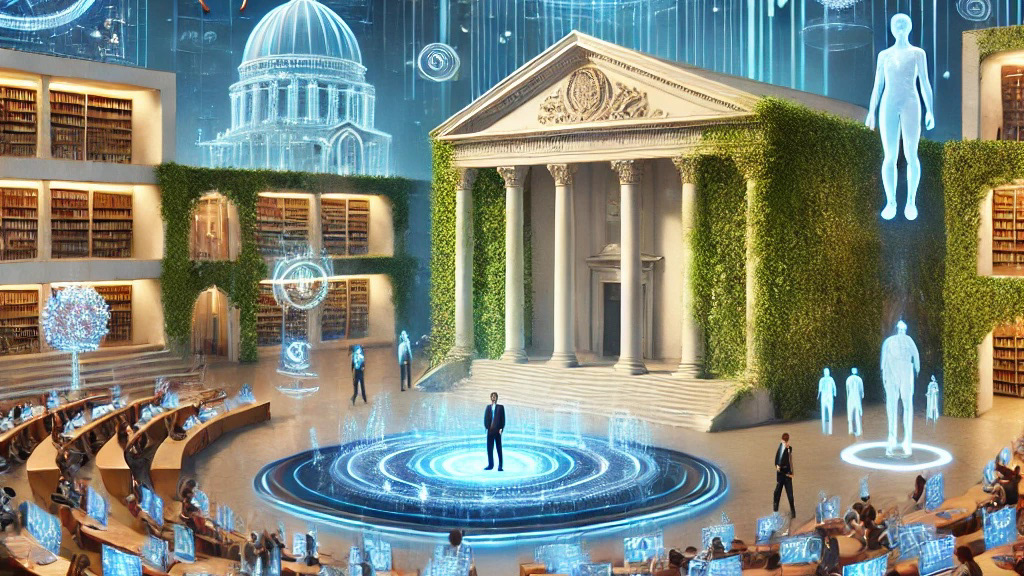In a rapidly evolving world driven by technology, artificial intelligence (AI) continues to permeate every facet of our lives, and education is no exception. As we gaze into the future, it becomes increasingly evident that AI will play a pivotal role in designing university courses and may even administer PhD programs. This exciting transformation promises to revolutionize education as we know it, offering a more personalized, efficient, and effective learning experience for students worldwide.
AI-Powered Course Design
Imagine a future where AI algorithms are responsible for crafting the curriculum of university courses. These algorithms, equipped with vast repositories of data and insights, can meticulously structure syllabi that are not only up-to-date with the latest advancements but also tailored to individual student needs. This ensures that courses are not just standardized, but optimized for the highest quality of learning.
AI can analyze vast amounts of data to identify trends in industry demands, emerging fields of study, and even student preferences. By harnessing this information, AI can design courses that equip students with the skills and knowledge most relevant to their career aspirations. This adaptability ensures that university courses remain agile in an ever-changing job market.
PhD Programs Redefined
Perhaps the most intriguing prospect is the potential for AI to administer entire PhD programs. With AI, the process of selecting research topics, crafting research proposals, and even guiding the research itself can be transformed. AI can serve as a guiding mentor, offering suggestions and resources to students, ultimately streamlining the PhD journey.
A PhD program designed and administered by AI promises to be more efficient, as it can eliminate bureaucratic hurdles and ensure a seamless academic experience. The technology can also leverage big data to connect students with expert mentors and resources worldwide, breaking down geographical barriers and expanding access to high-quality education.
Visual Learning Reinvented
AI’s capabilities extend beyond curriculum design and administration. It can also revolutionize the way we learn by generating images and visual aids that enhance comprehension. Complex concepts can be conveyed through interactive 3D models, animations, and simulations, making learning more engaging and accessible.
Visual aids generated by AI can adapt to individual learning preferences. For example, if a student is a visual learner, the AI can emphasize visual content, while audio learners can receive more auditory explanations. This personalized approach ensures that each student has the tools they need to succeed.
Personalized Learning at Its Best
One of the most compelling advantages of AI in education is its ability to adapt to the unique needs and preferences of each student. AI can monitor a student’s progress and adjust the pace and content of instruction accordingly. If a student struggles with a particular topic, the AI can provide additional resources and explanations until the concept is mastered.
Furthermore, AI is available around the clock, providing instant answers to questions and eliminating the need to wait for office hours. It can patiently explain problems and elaborate on difficult concepts until the user fully comprehends them. This level of personalized attention and adaptability surpasses what a human teacher can provide.
The Road Ahead
As AI continues to advance, the prospect of AI-designed university courses and fully administered PhD programs looms ever closer. This shift promises a more efficient, personalized, and accessible education system, ultimately preparing students more effectively for the demands of the future job market.
While AI may never replace the invaluable human elements of teaching, such as mentorship and emotional support, its ability to tailor education to individual needs and provide cutting-edge resources makes it a powerful ally in the world of academia. The future of education is on the brink of transformation, and AI is leading the way towards a brighter, more adaptive future for learners everywhere.









